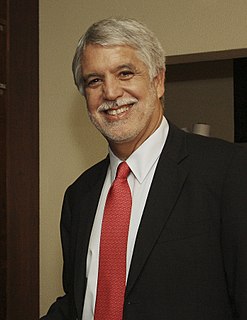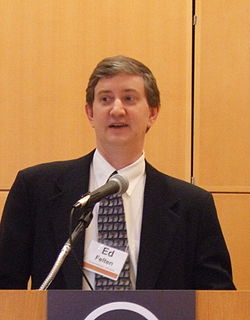A Quote by Thomas Bidegain
People who work in distribution will be distributors all their life.
Quote Topics
Related Quotes
There are 60 million generators in Nigeria. The generator owners and distributors have a strong incentive to not encourage the distribution of solar and other alternative energies, even though it's better for the country, it's better for people. As a world, we've got to get more serious about confronting those obstacles. This knows no culture, no race, no ethnicity.
I think the future fashion will be more and more separated-like, on one side would be big distribution, and on the other side there will be high-level prêt-à-porter and couture. I mean, the prêt-à-porter is already couture in a way for the prices and the way that it's made. The big distribution will allow people to dress in a fashionable way, so this could be for everybody. This part of the big distribution will be stronger and stronger, but the other part we are coming up on is more and more rich people, because we are always thinking about Europe and about America.
I think distribution has become a lot harder. With the whole explosion of digital video, there's just a lot more people making films. Distributors have a lot more choice. I do think there's an audience out there for small films. It's obvious to me what the studios do: they've co-opted independent film. They all have their independent arm. They can afford to crush the competition.
When I started, every film got a full theatrical distribution. Today, almost no low budget films, maybe two or three a year, will get a full theatrical distribution. We've been frozen out of that, which means they must be aware that for a full theatrical distribution it either has to be something like Saw or some exploitation film of today or an extremely well made personal film.
I have often said one of the greatest secrets of missionary work is work! If a missionary works, he will get the Spirit; if he gets the Spirit, he will teach by the Spirit; and if he teaches by the Spirit, he will touch the hearts of the people and he will be happy. There will be no homesickness, no worrying about families, for all time and talents and interests are centered on the work of the ministry. Work, work, work-there is no satisfactory substitute, especially in missionary work.






































